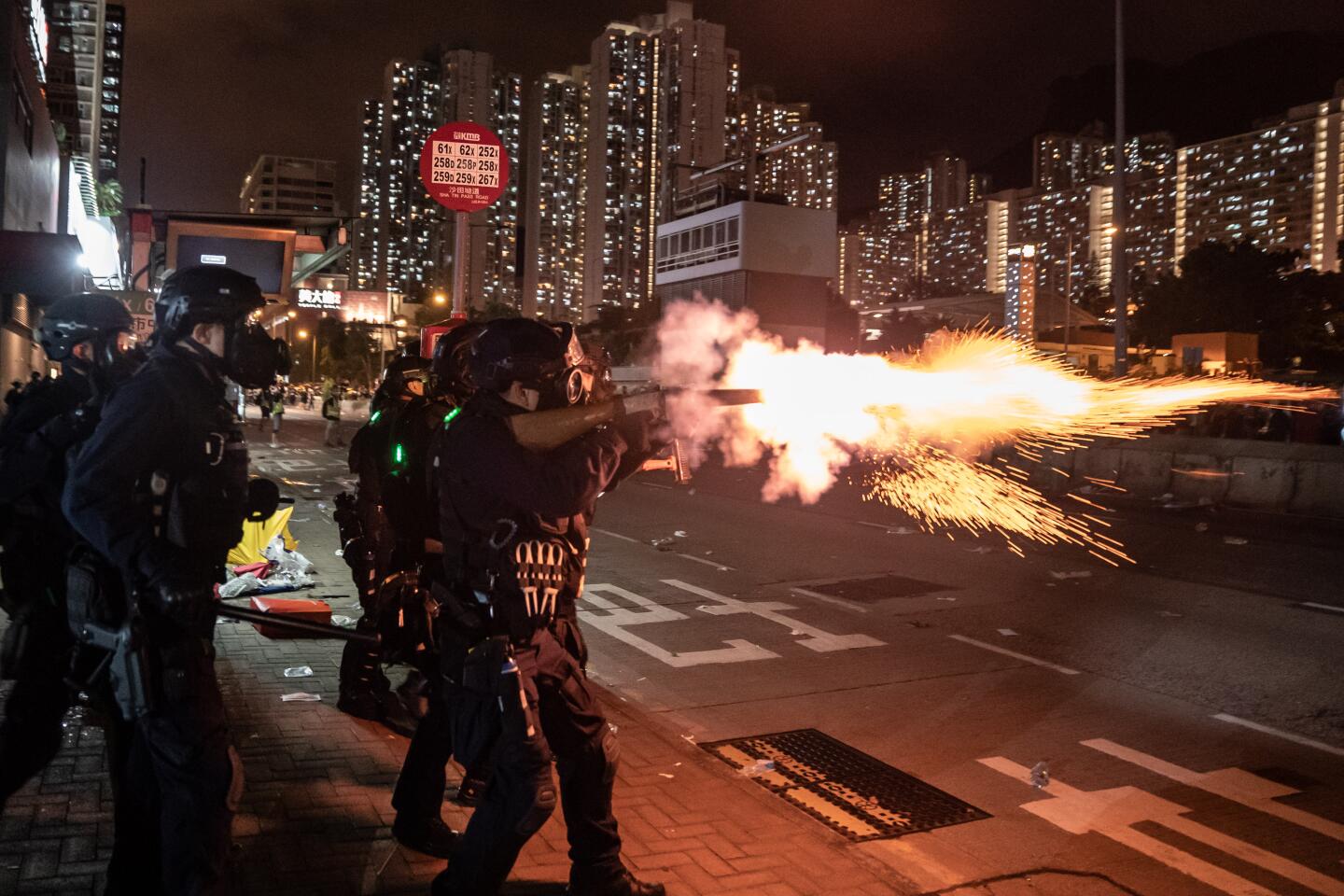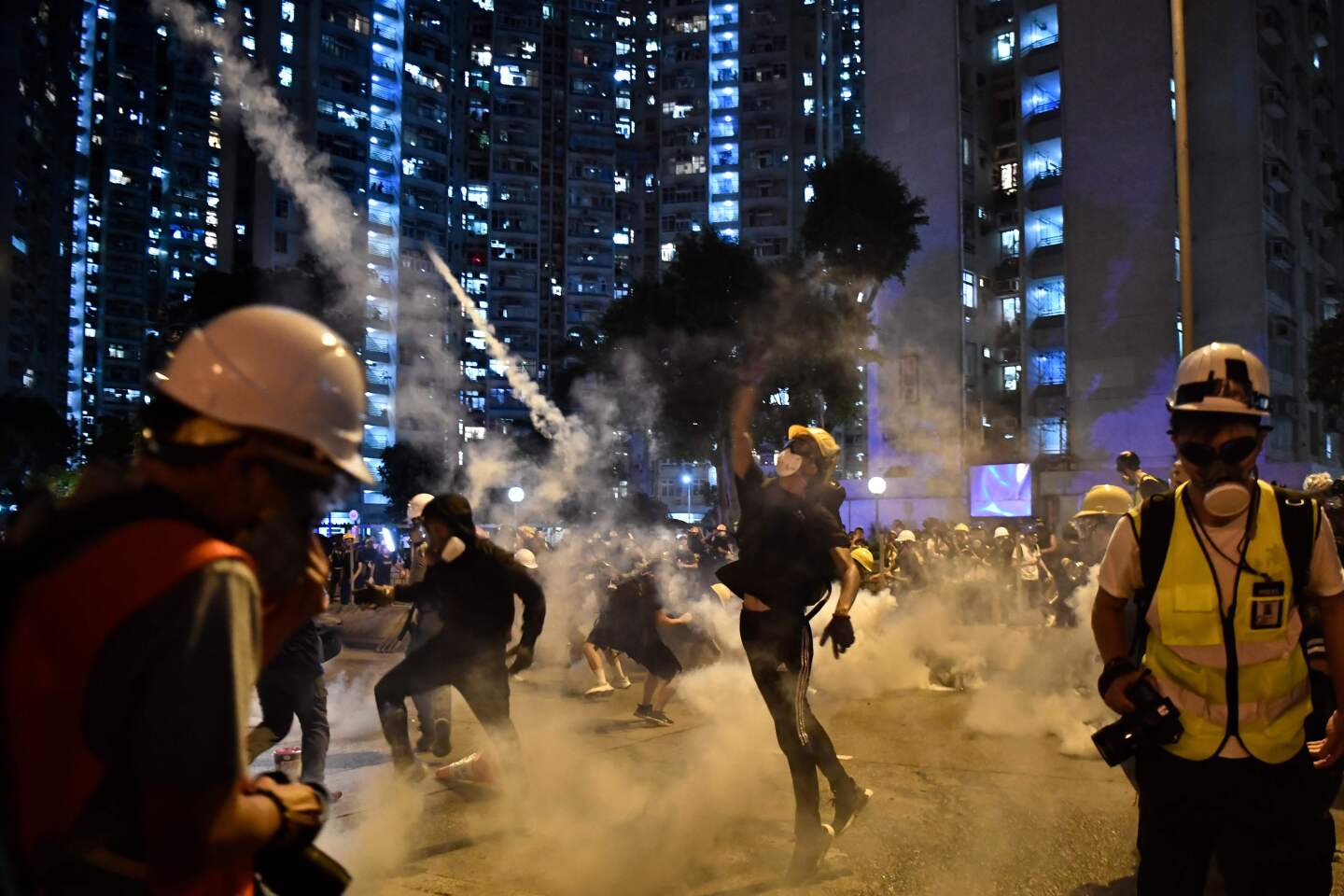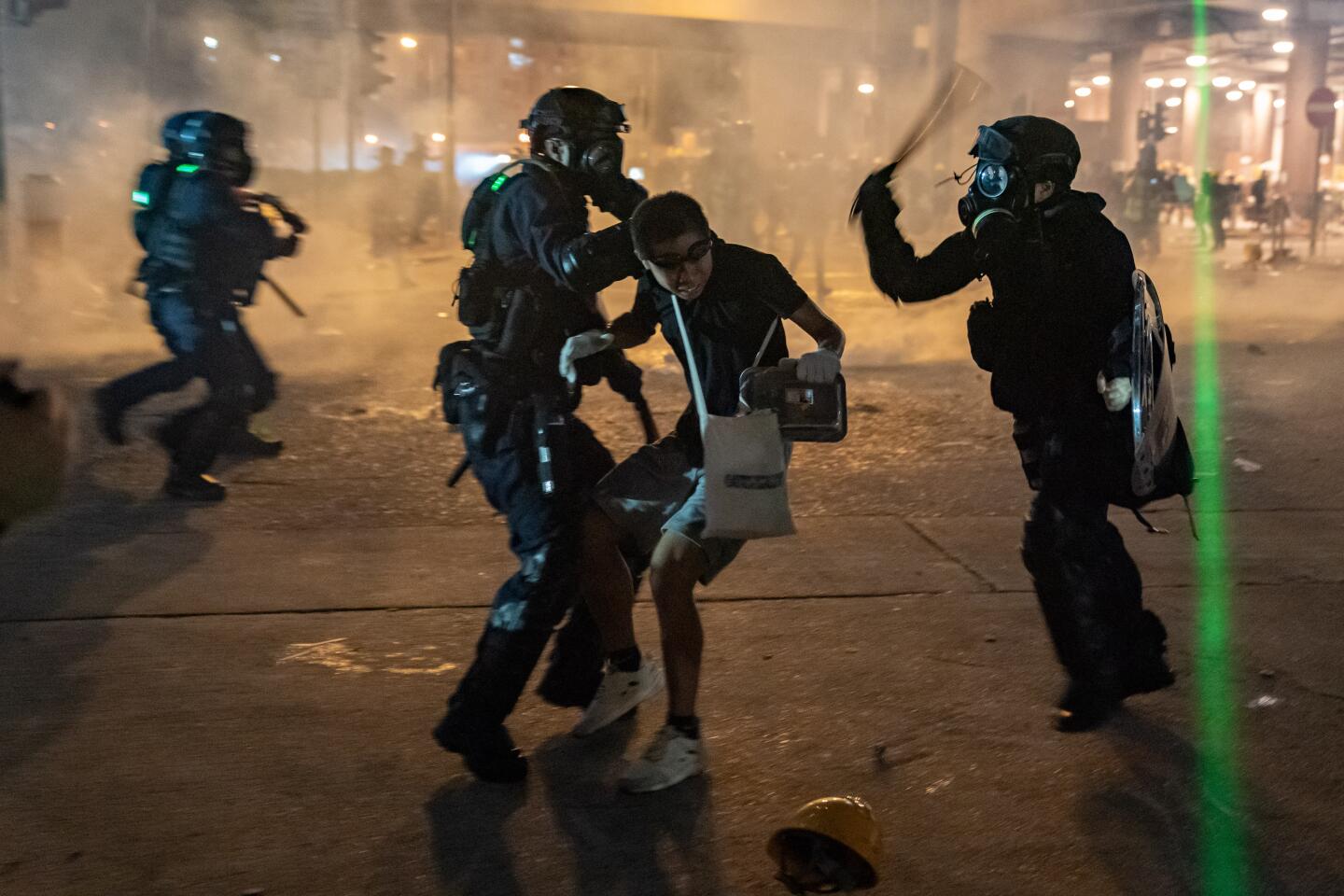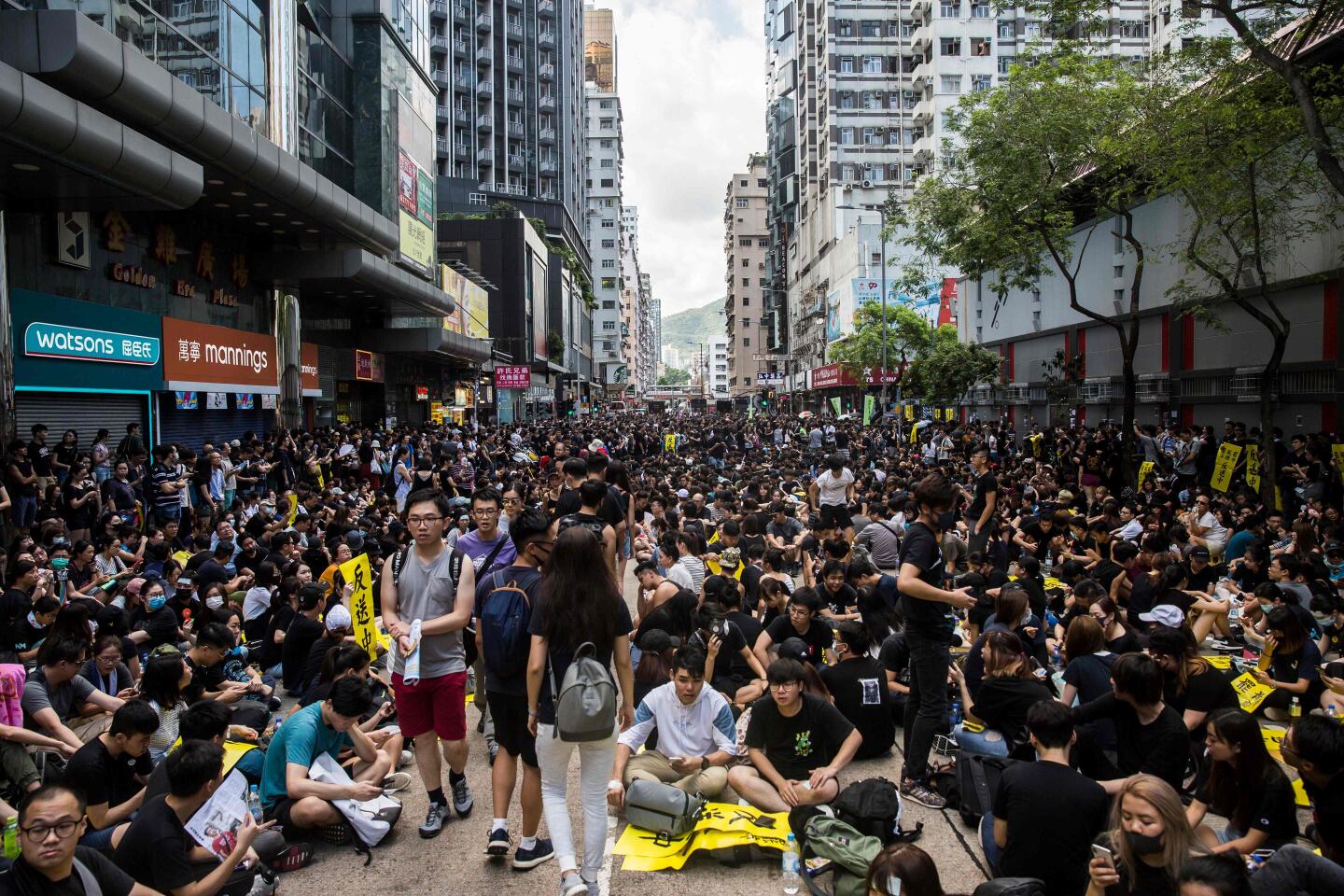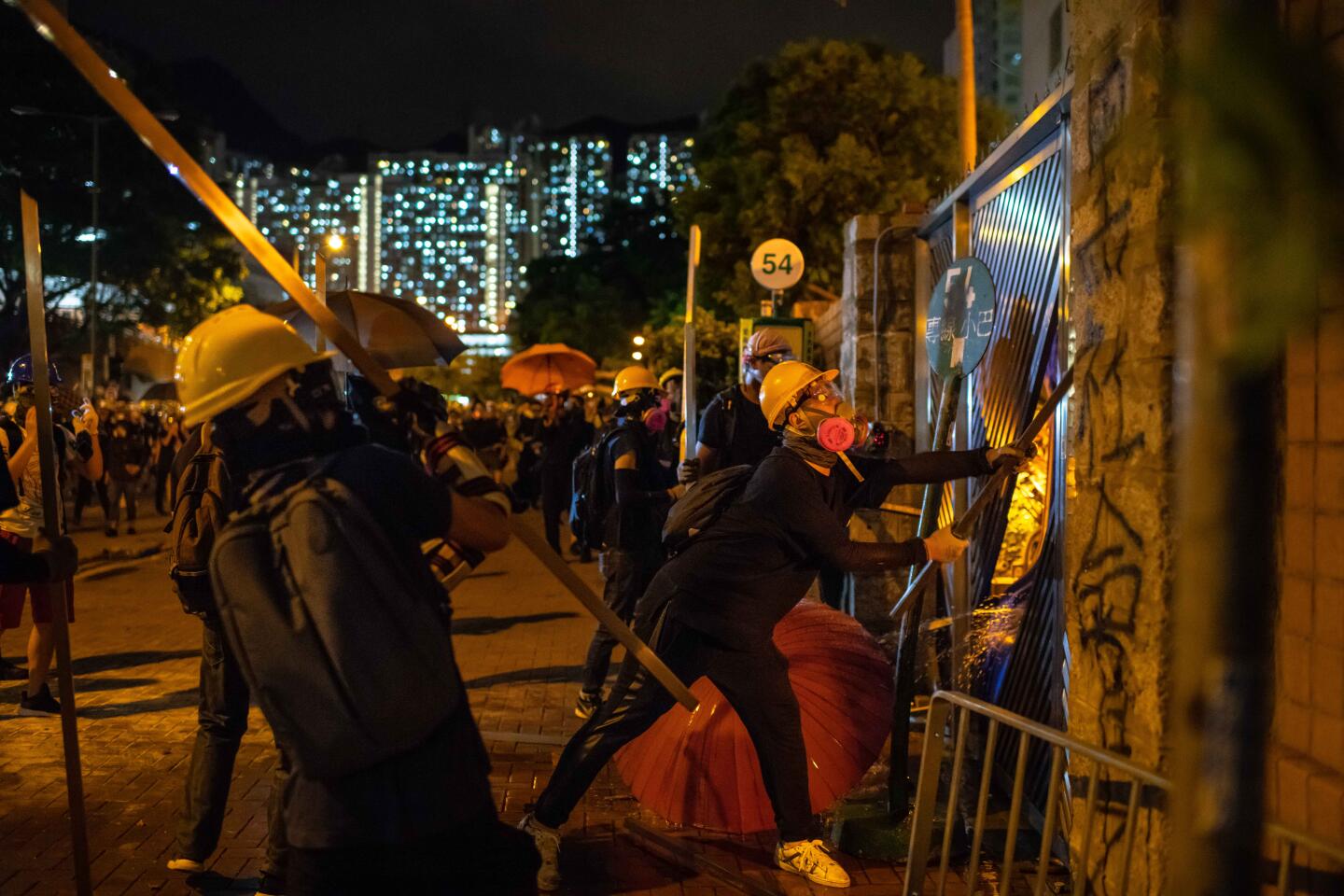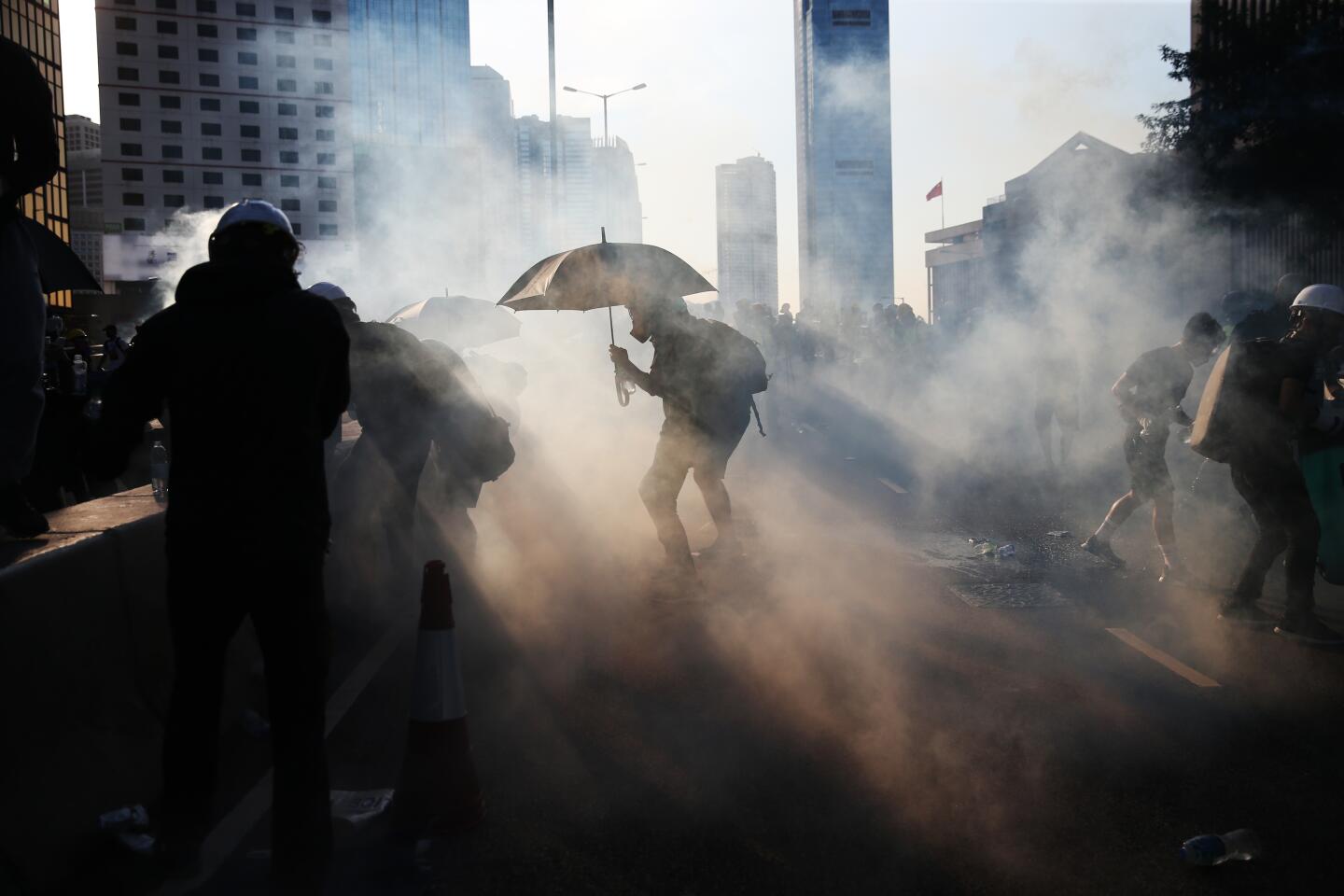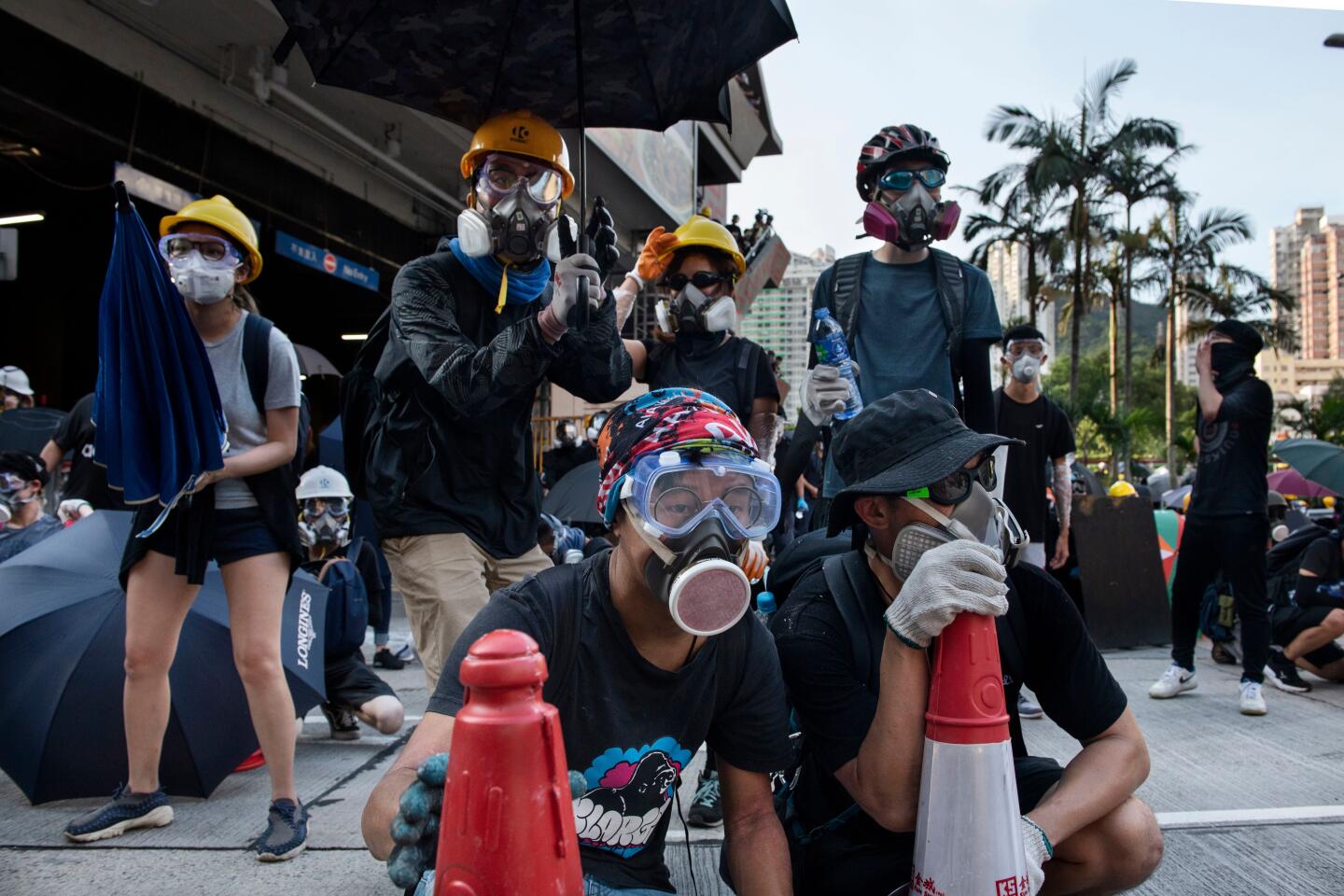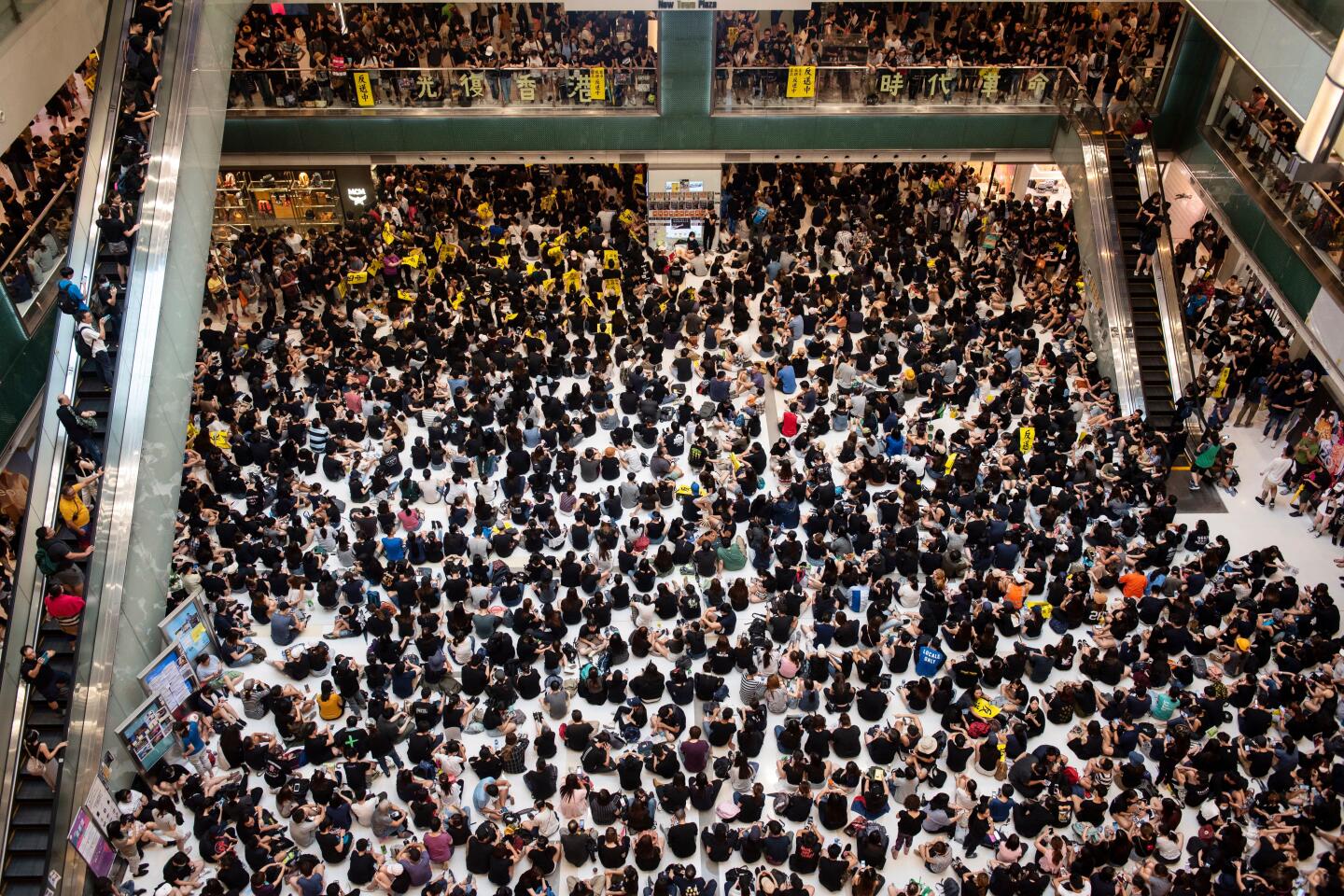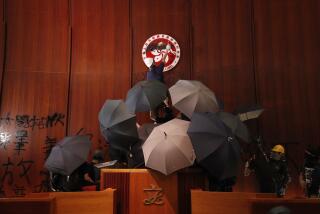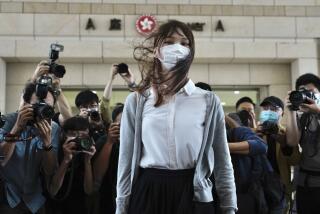Citywide strike erupts into night of chaos in Hong Kong
Police hunted protesters, protesters and thugs hunted each other and residents tried to protect themselves at home as fires, standoffs and outright brawls broke out.
Hong Kong tumbled into chaos Monday night, with multiple neighborhoods bathed in a neon haze of tear gas as police, residents and protesters clashed in simultaneous confrontations across the city. Clashes unfolded in the city’s central financial district, business and shopping areas, working-class neighborhoods and rural suburbs.
The chaos came after a day of strikes and civil disobedience that had paralyzed much of the city’s public transportation system through the morning.
Hong Kong is in its ninth week of protests, triggered by a proposed extradition bill that symbolized Beijing’s unwanted influence on the territory, now a movement demanding government accountability, scrutiny of the police and democratic reforms.
Protesters blocked subway doors, pressed emergency buttons in the mass transit stations and placed bikes, trolleys and other objects on the train tracks, causing most of the subway lines to be suspended during the usual commuter rush hour.
More than 200 flights out of Hong Kong’s international airport were canceled as air traffic controllers went on strike along with tens of thousands of others from more than 20 business sectors.
At 10 a.m. Chief Executive Carrie Lam held a news conference for the first time in two weeks, blaming protesters for disrupting the workday, harming Hong Kong’s economy and harboring “ulterior motives” of revolution and Hong Kong’s destruction.
“This is the time for us to rally together, to set aside differences and bring back order and say ‘no’ to chaos and violence,” Lam said, adding that she had addressed protesters’ demands by suspending the extradition bill and that she would not resign.
“I don’t think at this point in time resignation of myself or some of my colleagues will provide a better solution,” Lam said. She said she was sad about the police being put under pressure and did not agree to an independent inquiry into police violence.
By 1 p.m., tens of thousands of protesters streamed to seven simultaneous rallies in blazing heat.
“No rioters, only tyranny! Carrie Lam, step down!” chanted thousands of protesters at a sports stadium in the busy market district of Mong Kok. They strung up pictures of Lam, police and other government officials as targets in a soccer net.
Rally organizer Ventus Lau, 25, criticized Lam’s speech.
“The only person who can stop this problem is herself,” Lau said. If the chief executive would compromise and agree to even one or two of the protesters’ demands, that would de-escalate the situation, he said.
“She is the one pushing Hong Kong to the edge of danger.”
Tens of thousands flocked to a mall in the suburban neighborhood of Sha Tin, where near-daily protests have taken place since police fought protesters in a bloody clash in mid-July.
“Hong Kong police!” bellowed Neil Chan, 30, a Sha Tin resident, from on top of an escalator.
“They know the law, they break the law!” responded a seated crowd of thousands wearing black and waving yellow strike signs on the mall floor below.
“Hong Kong police need to protect Hong Kong people, but now they are only fighting Hong Kong people. What the hell?” said Chan, who was striking from a delivery job.
He was livid that police had fought with protesters inside his neighborhood shopping mall and that they had failed to protect civilians from an armed thug attack in July.
“Police need to be punished. We need an independent committee to make them stop the violence and stop fighting Hong Kong people,” Chan said.
Roy Lo, 28, a Yuen Long resident and building surveyor on strike, said he’d come to Sha Tin because he feared his own neighborhood – where thugs had attacked previously – was unsafe.
“We can see in videos that Hong Kong police are together with these white-shirt attackers. We cannot accept a society run by police and thugs,” Lo said.
Two cars later drove through protesters’ barricades in Yuen Long and Sha Tin during the rallies, injuring several people.
Police began shooting tear gas around 5 p.m. in Admiralty, where protesters had returned to the government headquarters and legislative buildings for the first time since breaking in and vandalizing the legislative chamber on July 1.
This time, protesters dashed toward the tear gas instead of away from it, many of them now outfitted in helmets, goggles, gas masks and head-to-toe black clothing. Teams of three or four extinguished freshly fired canisters with traffic cones and bottles of water, sprinting from one to the next even as police continued to shoot.
Two older women at a mall next to the clashes called themselves “silver-haired supporters” of the youth on the front lines. Both had young nieces who were out confronting the police.
Lam’s words were “nonsense” coming from a government that had favored real estate tycoons and Beijing’s wishes over young people’s futures and disqualified the candidates that pro-democracy youth elected, said Parpmy Tan, 59, a retail company manager on strike.
“The bill is just a trigger point to people in Hong Kong, especially youngsters,” Tan said. “We’re not just supporting the youngsters only. We’re fighting for ourselves. Actually, they’re fighting for us.”
Cleo Lam, 60, a part-time accountant on strike, said she didn’t like “foul language” or throwing stones but believed young people were pushed into these methods, she said.
“I understand and want to support them, because they’re really helpless. They can’t see their future,” Lam said, adding that she wanted older people to stand in front of police if the young were all arrested, though it might not make a difference in the end.
“We also feel so helpless,” she said.
“Be water,” a Bruce Lee quote that protesters have adopted as their mantra, manifested in a new way as protesters split into more than seven groups across Hong Kong, popping in and out of different locations, building barricades and taunting police.
They stayed just long enough to provoke the authorities, then left at a moment’s notice, chanting and changing locations seemingly at random, but in smooth coordination.
In North Point, a neighborhood on Hong Kong Island known for having many pro-Beijing residents, men wearing white and black T-shirts waited for protesters to arrive, bearing bamboo rods and wooden sticks similar to those held by local gangs who’d attacked protesters and passersby in Yuen Long several weeks ago.
This time, protesters fought back. Traffic cones, metal street barriers and bamboo sticks flew in the air above the two crowds as they brawled in the streets. Residents threw glass bottles from overhead at the protesters, who flashed lasers back into their windows.
Across the harbor in Kowloon and the rural suburbs called the New Territories, protesters surrounded police stations, scrawling insults on the outer walls and flashing lasers at dormitory windows. Once police came out with tear gas and pepper spray, some protesters escalated by throwing bricks, stones and burning objects at police stations as well as setting barricades on fire.
Some protesters removed a Chinese national flag and dumped it into Victoria Harbor for the second night in a row.
On Sunday, protesters had also spray-painted Hong Kong’s golden bauhinia, a statue of the flower on Hong Kong’s flag, with slogans including “Reclaim Hong Kong” and “The heavens will destroy the Chinese Communist Party.”
Many of the clashes broke out in densely populated residential areas, where homes of the elderly and residents of public housing were exposed to large amounts of tear gas. One mother shepherded her wailing children into an elevator, sobbing as she drenched their faces with a bottle of water. Other residents shouted at police to leave.
As the night deepened, riot police shot tear gas at protesters from rooftops in some areas while protesters screamed curses at them from below.
In Sham Shui Po, a working-class neighborhood, police fired tear gas at angry residents who protested that they weren’t protesters. In Tsuen Wan, a New Territories suburb, a mob of men attacked protesters and passersby with knives. In Wan Chai, a business area on Hong Kong Island, protesters threw Molotov cocktails at the police headquarters.
Beijing’s State Council announced that its Hong Kong and Macau affairs office, China’s highest government body for Hong Kong affairs, would hold a news conference Tuesday.
Hong Kong police said at a news briefing that they had arrested 420 people aged 14 to 76 in relation to protests and fired 1,000 tear gas rounds and 160 rubber bullets since June 9, not including Monday.
By late Monday night, the number of arrests had increased past 500 and continued to rise.
More to Read
Start your day right
Sign up for Essential California for news, features and recommendations from the L.A. Times and beyond in your inbox six days a week.
You may occasionally receive promotional content from the Los Angeles Times.
